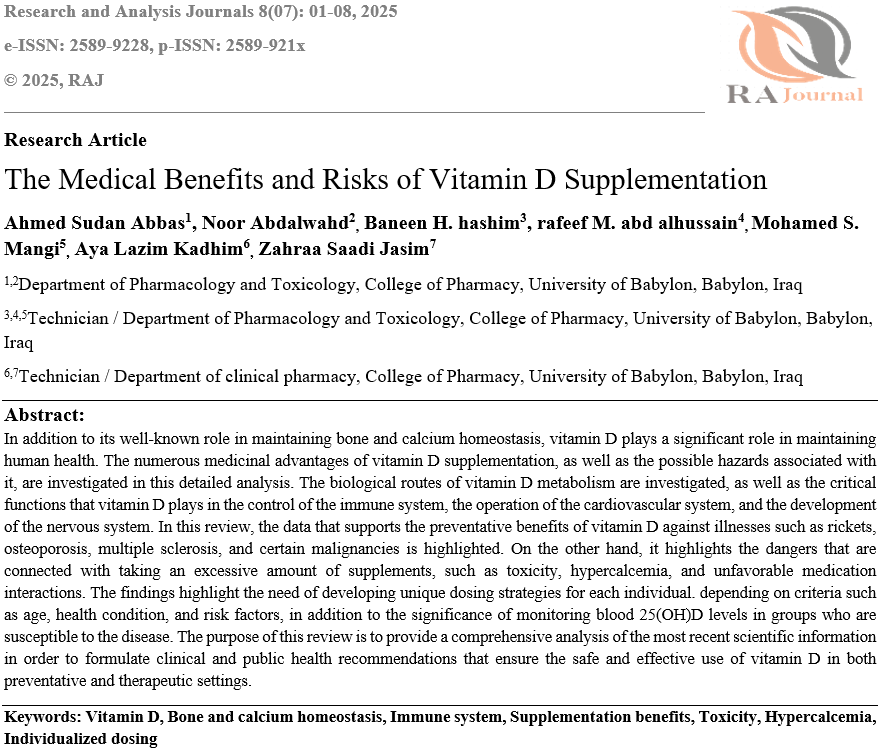
Downloads
Keywords:
The Medical Benefits and Risks of Vitamin D Supplementation
Authors
Abstract
In addition to its well-known role in maintaining bone and calcium homeostasis, vitamin D plays a significant role in maintaining human health. The numerous medicinal advantages of vitamin D supplementation, as well as the possible hazards associated with it, are investigated in this detailed analysis. The biological routes of vitamin D metabolism are investigated, as well as the critical functions that vitamin D plays in the control of the immune system, the operation of the cardiovascular system, and the development of the nervous system. In this review, the data that supports the preventative benefits of vitamin D against illnesses such as rickets, osteoporosis, multiple sclerosis, and certain malignancies is highlighted. On the other hand, it highlights the dangers that are connected with taking an excessive amount of supplements, such as toxicity, hypercalcemia, and unfavorable medication interactions. The findings highlight the need of developing unique dosing strategies for each individual. depending on criteria such as age, health condition, and risk factors, in addition to the significance of monitoring blood 25(OH)D levels in groups who are susceptible to the disease. The purpose of this review is to provide a comprehensive analysis of the most recent scientific information in order to formulate clinical and public health recommendations that ensure the safe and effective use of vitamin D in both preventative and therapeutic settings.



